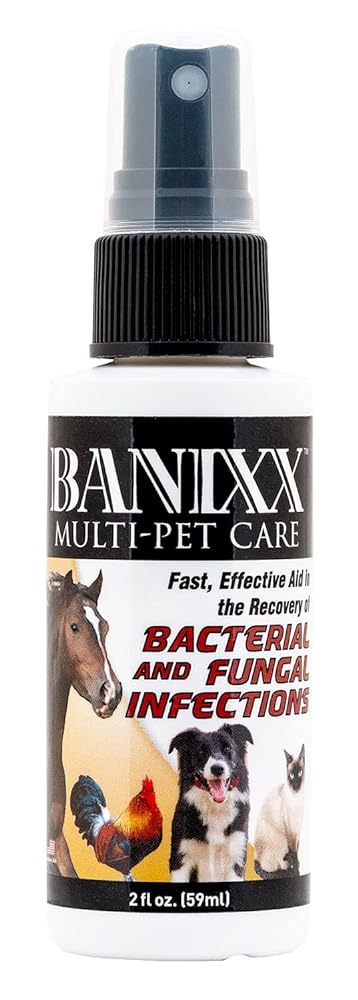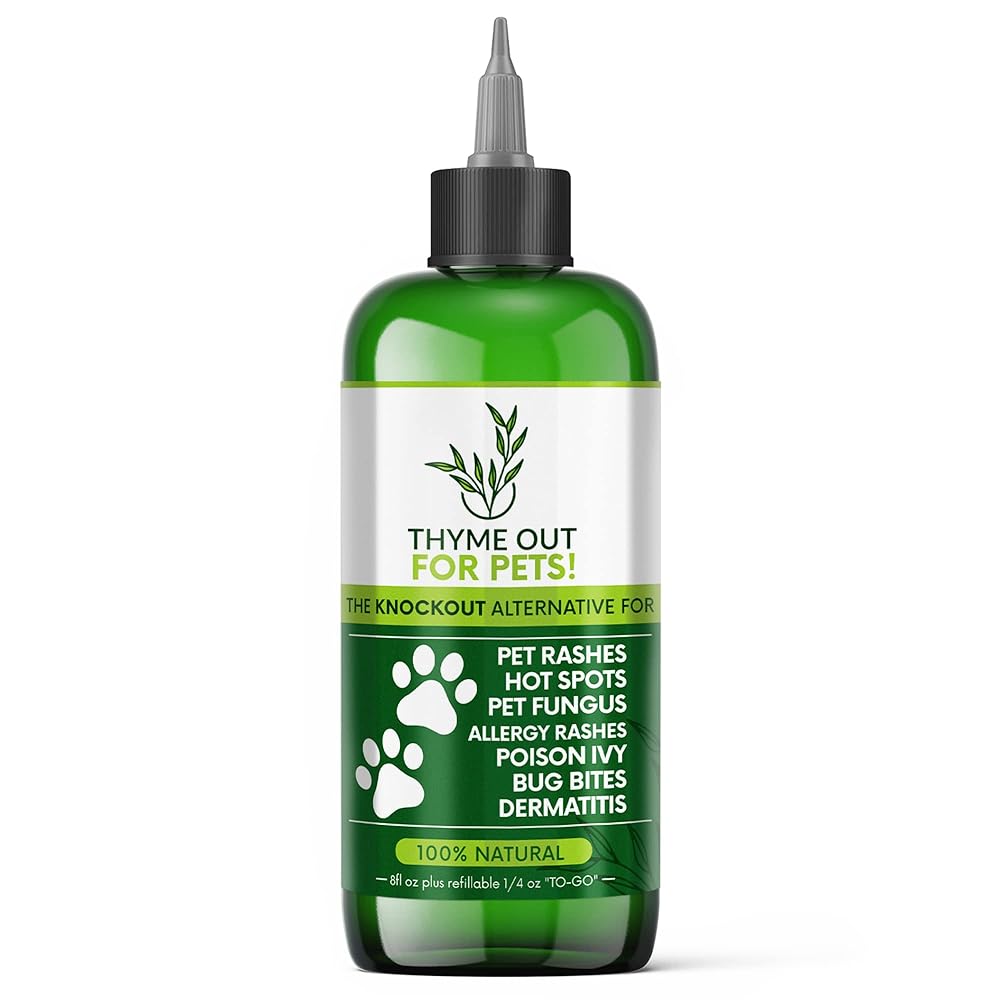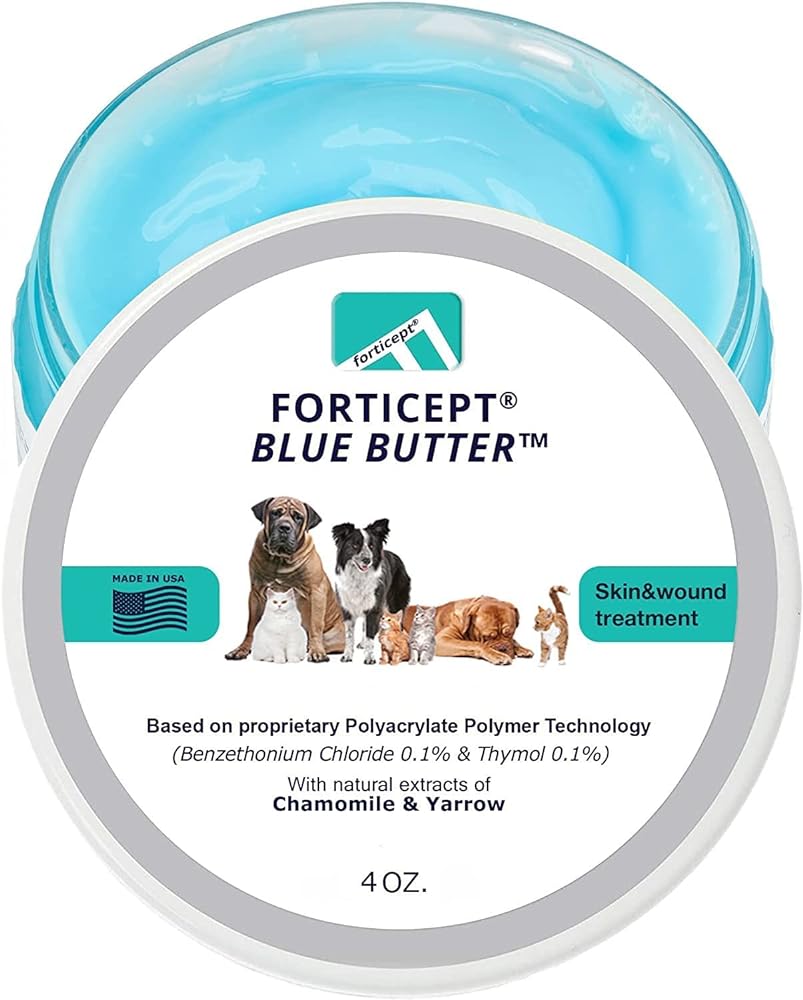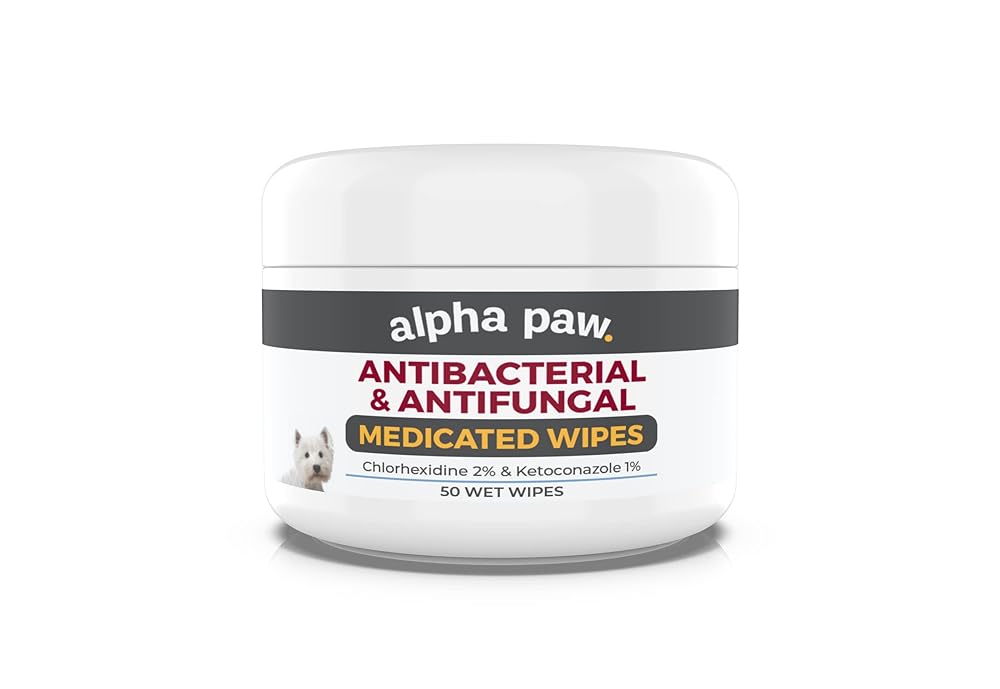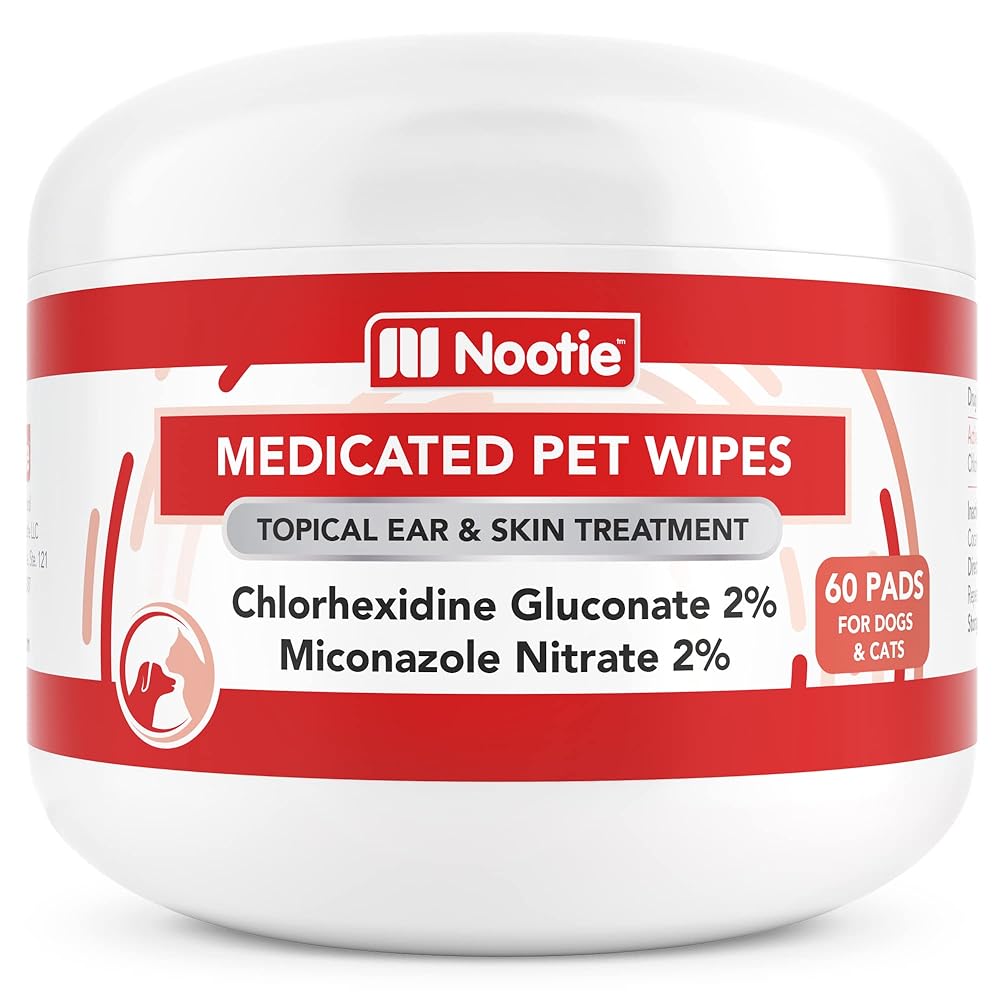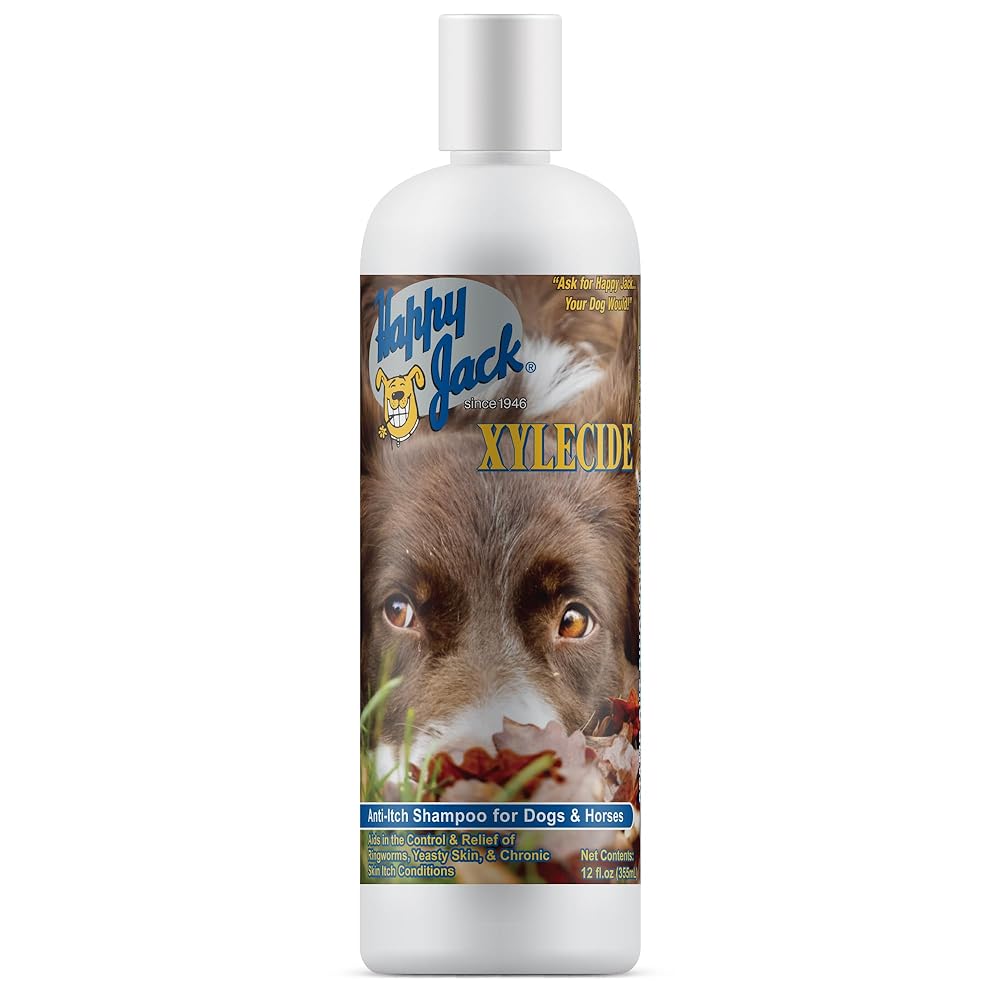iHeartCats is reader-supported. When you buy via links on our site, we may earn an affiliate commission at no extra cost to you.
Ringworm is a common yet annoying skin condition that can affect our feline friends. Caused by a fungus, not a worm as the name suggests, this skin ailment can be frustrating for both cats and their owners. With a range of treatments available, from topical creams to oral medications, knowing which product to choose can be daunting. In this article, we will explore the best cat ringworm treatments available, providing you with comprehensive insights to make an informed decision for your pet’s health.
#1 – BANIXX Dog/Cat Ear Infection, Hot Spot & Ringworm Treatment, Itchy Skin Relief & Ear Cleaner-2oz
The BANIXX Dog/Cat Ear Infection, Hot Spot & Ringworm Treatment is a veterinarian-recommended product for treating a range of skin issues in dogs, cats, and other animals. It is classified as a non-irritant and has been shown to effectively kill bacteria and fungus. This pain-free and non-toxic product is safe and easy to apply, with no sting or burn, and is made in the USA.
Best For: Treating a variety of skin issues in pets.
#2 – Veterinary Formula Clinical Care Antiseptic and Antifungal Medicated Shampoo for Dogs & Cats, 16oz – Helps Alleviate Scaly, Greasy, red Skin – Paraben, Dye, Soap-Free
The Veterinary Formula Clinical Care Antiseptic and Antifungal Medicated Shampoo is a product designed to help alleviate skin issues in dogs and cats. It contains powerful ingredients that work to soothe red, scaly, greasy, or smelly skin that may cause discomfort. The shampoo is pH-balanced, paraben-free, and soap-free, making it safe for pets and promoting overall skin and coat health.
Best For: Alleviating skin issues in dogs and cats.
#3 – Thyme Out for Pets (8oz) – Natural Dog and Cat Itch Relief & Skin Treatment for Itchy Paws and Ringworm – Yeast Infection, Dandruff and Hot Spot Spray for Dogs – All Natural, Organic Blend
Thyme Out for Pets is a natural dog and cat itch relief and skin treatment product. It is made from organic Thyme and Aloe Vera and is effective against fungal, bacterial, and viral issues. This versatile pet rash treatment can soothe irritated skin and is easy to apply with an easy-to-use dispenser tip. It is safe for pets of all sizes and comes with a 30-day satisfaction guarantee.
Best For: Pet itch relief and skin treatment
#4 – Pet MD Topical Spray for Dogs, Cats, and Horses with Essential Fatty Acids, Aloe, and Vitamin E – 8 oz
The Pet MD Topical Spray is an 8 oz solution designed to cleanse and manage the skin and coat of dogs, cats, and horses. It contains essential fatty acids, aloe, and vitamin E to promote healthy skin and coat. This non-stinging spray is perfect for use between baths and is particularly useful for cleansing face folds, finger folds, underarms, and groin areas. It is made in the USA in federally regulated manufacturing facilities to ensure quality and safety.
Best For: Topical cleansing and maintenance of a healthy skin and coat for dogs, cats, and horses.
#5 – Forticept Blue Butter – Hot Spot Treatment for Dogs & Cats | Dog Wound Care | Skin Yeast Infections, Ringworm, Cuts, Rashes, First Aid Veterinary Strength Topical Ointment 4oz
The Forticept Blue Butter is a hot spot treatment for dogs and cats that can be used for wound care, skin infections, cuts, rashes, and more. It is a topical ointment that promotes healing and disinfects wounds. The product is safe and non-toxic, making it suitable for the entire family, and it has been clinically proven and recommended by veterinary doctors.
Best For: Dog wound care and skin infections.
#6 – Smiling Paws Pets – Antibacterial & Antifungal Wipes for Dogs & Cats (with Chlorhexidine & Ketoconazole)
The Smiling Paws Pets Antibacterial & Antifungal Wipes for Dogs & Cats are medicated wipes that treat and eliminate skin infections in pets. These wipes are specifically designed to treat conditions such as yeast infections, fungus, bacteria, mange, ringworm, hotspots, and pyoderma. They are perfectly sized and soothing, with active ingredients like Aloe and Essential Fatty Acids to alleviate infected areas.
#7 – Nootie Medicated Dog Wipes, 2% Chlorhexidine and 2% Miconazole Formulated Pet Wipes for Dogs and Cats – 2” Small Pet Wipes – 60 Count – Sold in Over 10,000 Vet Clinics and Pet Stores Worldwide
The Nootie Medicated Dog Wipes are veterinarian-strength pet wipes that contain 2% Chlorhexidine and 2% Miconazole to provide relief for pets. These wipes are ideal for treating and providing relief from ear infections, skin conditions, ringworm, hotspots, allergy dermatitis, and other skin and ear infections. The wipes are convenient to use, gentle and soft, and have a pleasant fragrance.
Best For: Providing relief from ear infections and skin conditions.
#8 – HAPPY JACK Xylecide, Itch Relief Shampoo for Dogs, Control Ringworms, Itchy Skin Treatment for Hot Spots, Seborrheic Dermatitis, Dandruff, Psoriasis, Eczema, Kennel Itch (12 oz)
The HAPPY JACK Xylecide Itch Relief Shampoo for Dogs is a product designed to treat various skin problems in dogs, including ringworms, itchy and irritated skin, hot spots, seborrheic dermatitis, dandruff, psoriasis, eczema, and kennel itch. It provides fast relief and can be used every 2-4 weeks if symptoms persist. Made in the USA, Happy Jack has been a trusted brand for over 70 years in effectively controlling ringworms, mites, and fleas.
Best For: Controlling ringworms and providing itch relief for dogs.
What Should I Consider When Purchasing a Cat Ringworm Treatment?
When purchasing a ringworm treatment for your cat, several important factors should be taken into consideration:
- Veterinary Diagnosis: The first step in treating ringworm is getting a confirmed diagnosis from a veterinarian. Ringworm can mimic other skin conditions, so it’s crucial to be sure you’re treating the right ailment.
- Type of Treatment: Ringworm can be treated with various types of medications, including topical creams, shampoos, and oral medications. Your vet can help you decide which form of treatment is best for your cat’s specific situation.
- Safety and Side Effects: Always consult with your veterinarian about the safest options for ringworm treatment, particularly if your cat has other health conditions or is pregnant. It’s essential to know the potential side effects of any medication.
- Ease of Application: Consider how easy it will be to administer the treatment. Creams might be difficult to apply if your cat dislikes being touched, while oral medications may be easier for some pets.
- Dosage: Make sure to follow the recommended dosage and application frequency as directed by your veterinarian or the medication guidelines. Over- or under-dosing can be ineffective or harmful.
- Duration of Treatment: Ringworm can be stubborn and may require weeks of consistent treatment. Be prepared to commit to the full course of treatment to completely eradicate the fungus.
- Multi-Pet Households: If you have multiple pets, you’ll need to consider whether they also need treatment or preventive measures to stop the spread of the infection.
- Environmental Cleaning: Alongside treating your cat, you may need to decontaminate your home to prevent reinfection. Some treatments may come with environmental cleaning solutions or recommendations.
- Cost: While price shouldn’t be the only factor, it’s good to know upfront what the financial commitment will be for the entire duration of the treatment.
- Reviews and Recommendations: Look for products that have good reviews, both from professionals and from other pet owners. Personal experiences can offer valuable insights into how effective a product is.
Consulting with your veterinarian will help tailor the best treatment plan for your cat, and taking these considerations into account will ensure you choose the most effective and safe option available.
How Do Cats Get Ringworm?
Ringworm in cats is caused by a type of fungus called dermatophytes, and it’s a highly contagious condition. Here are some common ways cats can get infected with ringworm:
- Direct Contact with Infected Animals: One of the most common ways cats get ringworm is through direct skin-to-skin contact with another infected animal. This could be another cat, a dog, or even a rodent.
- Contact with Contaminated Objects: Cats can also get ringworm by coming into contact with objects that an infected animal has touched. This can include bedding, grooming tools, or furniture.
- Environment: The ringworm spores can survive in the environment for a long time, making it possible for a cat to pick up the infection from contaminated soil or other surfaces.
- Human Transmission: Humans who are infected with ringworm can also transmit it to their cats, although this is less common.
- Animal Shelters or Crowded Conditions: Cats in animal shelters, catteries, or other crowded living conditions are at a higher risk for ringworm simply because they’re in close proximity to other animals who might be infected.
- Weak Immune System: Cats with compromised immune systems are more susceptible to ringworm. This includes very young kittens, elderly cats, and cats who are immunocompromised due to illness or medication.
Understanding the ways in which ringworm is transmitted can help you take preventative measures to minimize the risk of this fungal infection affecting your feline friend.
Frequently Asked Questions About Cat Ringworm Treatments
1. How do I know if my cat has ringworm?
Ringworm usually presents as circular patches of hair loss, redness, or scaling on the skin. However, the symptoms can vary and sometimes resemble other skin conditions. If you suspect ringworm, consult your veterinarian for a definitive diagnosis through tests like a fungal culture or microscopic examination.
2. Can I treat ringworm in cats without seeing a vet?
While there are over-the-counter treatments available, it’s crucial to consult a veterinarian for an accurate diagnosis and tailored treatment plan. Ringworm can mimic other skin issues, and incorrect treatment may prolong the condition or cause additional problems.
3. Are natural or home remedies effective for treating ringworm?
Some people claim success with natural remedies like apple cider vinegar or tea tree oil, but these are not universally proven treatments for ringworm. It’s important to consult your vet for effective and safe treatment options, as improper treatment can exacerbate the condition.
4. How long does it take for ringworm to go away in cats?
The duration of treatment can vary depending on the severity of the condition and the type of medication used. Generally, treatment can last from a few weeks to a couple of months. Consistency in administering the treatment is crucial for successful eradication of the fungus.
5. Can ringworms spread to humans or other pets?
Yes, ringworm is highly contagious and can spread to humans and other animals in the household. If one pet is diagnosed with ringworm, it’s advisable to check other pets and family members for signs of infection.
6. How can I prevent my cat from getting ringworm again?
Keeping your home clean and free from spores can help prevent re-infection. Regular vacuuming, washing pet bedding, and sanitizing grooming tools are essential. Some cats may also benefit from periodic antifungal shampoos as a preventive measure.
7. What are the side effects of ringworm medication for cats?
Side effects depend on the type of medication used but may include gastrointestinal issues, lethargy, or skin irritation. Always consult your vet for the medication best suited to your cat’s health condition, and monitor your pet for any adverse reactions.
8. Can I vaccinate my cat against ringworm?
Currently, there is no vaccine available for ringworm prevention in cats. The best prevention strategies involve regular cleaning, grooming, and prompt treatment of any infected animals.
9. Is ringworm treatment expensive?
The cost of ringworm treatment can vary depending on the severity of the condition, the type of treatment, and geographic location. It can range from relatively inexpensive topical treatments to more costly oral medications or specialized shampoos.
10. Will shaving my cat’s fur help in treating ringworm?
Shaving can help in severe cases by making it easier to apply topical treatments and may help in reducing environmental contamination. However, it’s essential to consult your veterinarian to determine if this is the right course of action for your pet.
Conclusion: Best Cat Ringworm Treatments
Dealing with ringworm in cats can be a challenging experience, but with the right treatment, you can effectively manage and eliminate this skin condition. It’s important to consult your veterinarian for a proper diagnosis and tailored treatment plan, as every cat’s health needs are unique. With the options discussed in this article, you’ll be well-equipped to choose a treatment that is both effective and safe for your feline companion. Remember, consistency in applying the treatment and monitoring your cat’s progress is key to a quick and full recovery.

